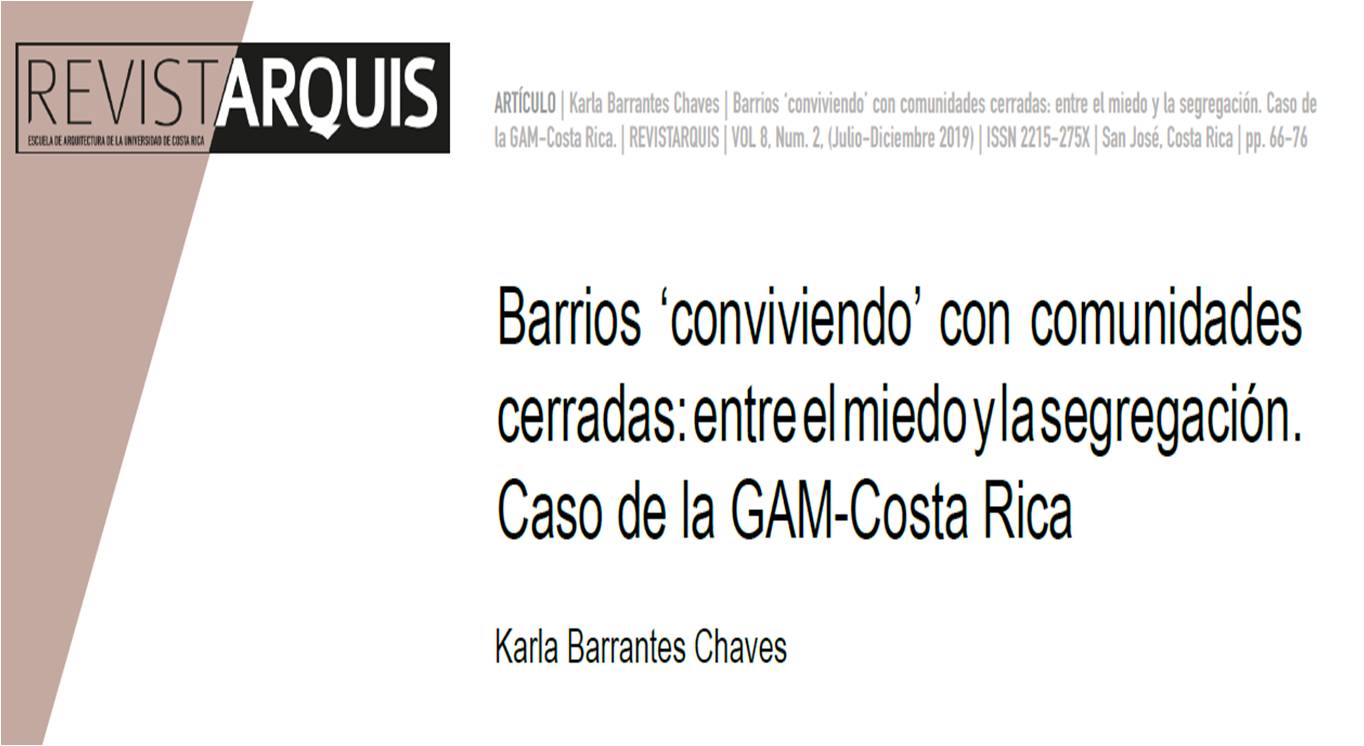Abstract
Fear of crime seems to be a constant concern in Costa Rica as well as in Latin America. This anxiety might be changing the urbanization patterns, leading the way to gated communities. Paradoxically, those developments could be feeding some feelings of exclusion and anxiety in their peripheries instead of being a solution to crime among other reasons due to the fragmentation of the city and the lack of provision of public spaces. This article presents some thoughts based on conceptual approaches regarding the spread of gated communities as well as the situation within the Greater Metropolitan Area (GAM). It seeks
to explore some effects of those residential developments in the adjacent neighborhoods. This work is part of an ongoing research. These initial assessments are based on a fieldwork carried out in Costa Rica from June to December in 2018 as a first stage of research. The methodology approach is through eight study cases, which represent neighborhoods with diverse types of unfulfilled needs (NBI) within the GAM. The cases were selected using Geographic Information Systems (GIS) with census’ data; they are located next to gated communities. A walking interview was carried out in each neighborhood with a group of people from the community. Those walks were tracked with a GPS along with an audio recorded. Additionally, there were focus groups, meetings, observations and interviews. Finally, this work shares some preliminary findings, which show feelings of exclusion and residential segregation as well as particular anxieties in women and teenagers.

